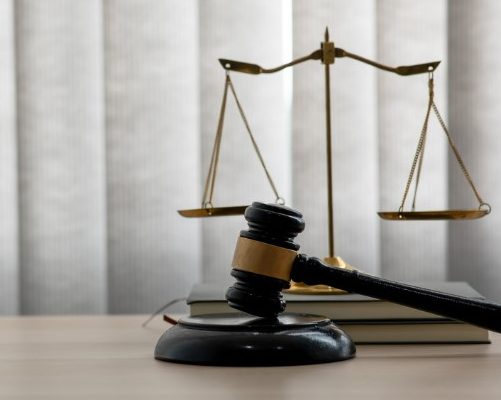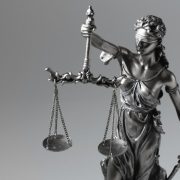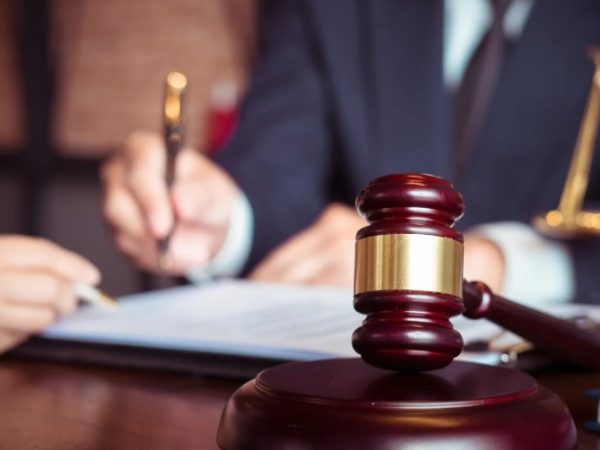Table of Contents
ToggleAlthough whistleblowing is a legal act of informing about wrongdoing, it is more of an ethical duty. It involves putting your career at risk in the interest of society. Whether it’s in health or social care, whistleblowing is vital for ensuring public interest. As lawyers, you may be required to whistleblow. But do you need advice before doing so? That is why we’re here to help! In this blog, we’ll talk about whistleblowing law and how you can be protected by it when you blow the whistle in your workplace. We’ll also talk about some prominent whistleblowing solicitors who can help you with this legal task.
What Does Whistleblowing Mean?
- Whistleblowing is the act of disclosing information to someone who has a right to know, in order to protect the public interest.
- There are a number of rights that whistleblowers enjoy under the law, including the right to anonymity.
- A whistleblower may also have the right to claim damages for any losses they have suffered as a result of the disclosure.
- It is important to remember that not all disclosures will result in legal action being taken.
- If you are considering blowing the whistle, it’s vital to speak to an employment lawyer first. This will help ensure your legal rights are protected and that your disclosure isn’t made in vain.
- Legal action often isn’t necessary if the information disclosed is accurate or relevant, and comes from a credible source. However, whistleblowing can play a vital role in exposing wrongdoing and protecting the public interest, so it’s important not to be deterred by potential legal action alone.
What is Whistleblowing in Health and Social Care?
Whistleblowing is the act of disclosing information that may be contrary to the interests of an organization or individual. There are a number of legal protections available for whistleblowers in health and social care, including financial compensation. Whistleblowers can also protect their anonymity if they wish to do so.
Many organizations offer support to whistleblowers in this field and provide a platform for them to raise issues safely and confidentially. Additionally, whistleblowing can help alert the public about malpractice and wrongdoing within an organization or system. Hence, it’s essential for all health and social care workers to speak up against wrongdoing and malpractice.
Why is Whistleblowing Important?
Whistleblowing is an important step that can lead to the prevention of illegal and unethical activities within organizations. It can help to expose corruption and wrongdoing within organizations, thereby protecting employees from discrimination and harassment. Whistleblowing can also help to protect the public interest by exposing criminal activity, such as financial mismanagement or data corruption.
This practice can help individuals from reprisals by their employers, as well as protect the rights and safety of individuals. Additionally, whistleblowing can lead to the implementation of corrective measures within an organization and at a societal level, thereby protecting individuals from unfair dismissal or other forms of employment discrimination.
Overall, whistleblowing is a vital part of any ethical organization, and it can positively impact public interest and trust in businesses.
What is the Whistleblowing law?
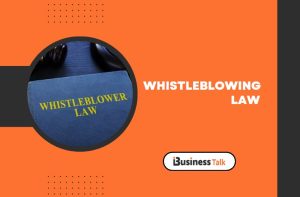
- The Whistleblowing law is an important employment rights law that protects employees who disclose illegal or unethical practices within their workplace. The law allows employees to seek damages for any loss caused by their disclosure and provides them with protection from retaliation by their employers.
- It’s complex and can be complex to enforce. There are a number of lawyers who specialize in whistleblower law, but if you have questions about its details, it’s best to consult a lawyer with experience in this area.
- You should also consult with a lawyer if you are considering making a disclosure of potential wrongdoing, as it can be complicated and could have legal implications.
Suppose you are considering filing a complaint with the government or regulatory body, as the law is complex and there could be legal ramifications for your actions. In that case, a lawyer can help you understand your legal rights and options and can provide advice on how to handle your whistleblowing situation best.
You should consult with a lawyer if you have any other questions about the whistleblowing law, as it is an important employment rights law that needs to be understood fully by those who rely on it.
What Type of Law Protects You When Whistleblowing?
The whistleblowing law in the UK is known as the whistleblower protection act. The whistleblower protection act provides employees with a legal right to disclose wrongdoing, regardless of whether public or private organizations employ them.
What Are the Benefits Of Whistleblowing?
Whistleblowing can protect employees from unfair dismissal or other forms of employment discrimination. It can also have a positive impact on public interest and trust in businesses, and it benefits, as it allows individuals who witness wrongdoing to bring it to light without fear of retribution.
Examples of Whistleblowing in the Workplace
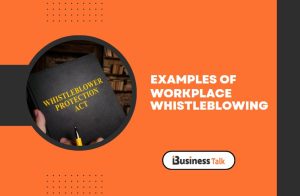
Some common examples of whistleblowing in the UK workplace include disclosure of wrongdoing by employees in the public sector, such as corruption and financial irregularities, and disclosures of wrongdoing by employees in the private sector, such as fraud or unfair business practices.
Can You Sue a Whistleblower?
Yes, individuals who whistleblow can sue their employers for breach of employment rights. If successful in court, whistleblowers can receive damages and may also be able to claim legal costs.
Do I need a Lawyer to be a Whistleblower?
There is no legal obligation for employees to consult a lawyer before whistleblowing. However, if you have any questions about the whistleblowing law or how best to protect your rights as an employee, you should contact a solicitor.
Whistleblowing Solicitors – Top 10 Lawyers for Employment
- Whistle-blowing is an important part of the anti-corruption act. It should be handled by qualified lawyers who can help you with your specific case and better understand your legal rights and obligations.
- Various solicitors can help you with your case, depending on the nature of the wrongdoing and the jurisdiction involved. The top 10 lawyers for employment are experienced in handling whistleblowing cases, specializing in anti-corruption, discrimination, and whistleblower protection. You can contact one of them if you decide to whistle on wrongdoing. They can guide you through the legal process and provide legal advice on employment to help protect your interests.
1. Lakhvinder Digpal – Slater and Gordon Lawyers

Lakhvinder Digpal is a senior lawyer with Slater and Gordon, one of the leading law firms in England and Wales. He has experience handling whistleblower cases, including those involving anti-corruption. If you have decided to blow the whistle on wrongdoing at your job, or if you are worried about what might happen should you do so, please contact Lakhvinder Digpal for advice.
Image – source
2. Sanjay Rall – Slater and Gordon Lawyers

Sanjay Rall is a leading whistleblower lawyer at Slater and Gordon Lawyers. He has helped employees who have faced discrimination, unfair treatment, and whistleblower retaliation. In addition to representing employees in relation to sexual harassment and other workplace discrimination, Sanjay has also represented employees who have spoken out about wrongdoing within their organization.
If you are an employee who has experienced wrongdoing at your job, contact Sanjay Rall at Slater and Gordon Lawyers for advice. He can help you protect your rights and move forward with your career. He also helps people who are proceeding with disciplinary action and data protection issues.
Image – source
3. Mark Sellek – Anderton Law

Mark Sellek is a whistleblower lawyer who has represented employees in a variety of whistleblower cases. He has extensive experience representing employees in cases involving discrimination, wrongful termination, and other workplace violations. His team of lawyers are dedicated to helping employees protect their rights and win their cases.
If you have been subjected to workplace misconduct and require legal advice, contact Mark Sellek for the representation you deserve. His team of experts can help you navigate the legal process and achieve justice.
They can represent you in court and negotiate a fair settlement or verdict in your case. They will work closely with you throughout the legal process to ensure your rights are protected and you receive the justice you deserve.
Image – source
4. Isabelle Mac Donald – Landau Law Solicitors

Isabelle Mac Donald is a lawyer with extensive experience in representing employees who have reported wrongdoing at their workplace. She has a track record of successfully resolving cases and helping employees reach settlements that reflect their concerns. The skill sets and expertise of Mac Donald’s team can play a crucial role in the investigation and litigation process.
They can provide an outside perspective on the issues, conduct detailed analysis, and help develop a strategy for best addressing the case. Their services can be invaluable as you navigate the challenges of whistleblowing and negotiate a settlement that addresses your concerns.
Mac Donald is well known for her work in the field of whistleblower law, and she has helped clients resolve situations that have left them feeling disillusioned or unsupported at work.
If you have been involved in a whistleblowing situation at your job, it may be difficult to know what to do next. But Mac Donald can help with advice regarding how best to address the issue and move forward with your career goals. She will work diligently to ensure that you receive compensation for damages and losses as well as legal fees incurred during the whistleblowing process.
Image – source
5. Marcus Difelice – JMW Solicitors

JMW Solicitors is a law firm that specializes in whistleblower cases. It has represented individuals who have come forward with allegations of wrongdoing and sought protection from their employers. Senior partner Marcus Difelice has extensive experience in these cases and has successfully represented employees who have done so.
He has received numerous awards for his work in this area. The lawyers at JMW Solicitors are skilled and experienced, providing legal advice and representation on a wide range of issues. They are always available to help small businesses run smoothly and remain compliant with legal requirements.
Image – source
6. Laura Wharton – JMW Solicitors

Laura Wharton is a leading whistleblower lawyer at JMW Solicitors. She has represented countless employees who have risked their jobs to speak out about wrongdoing in the workplace. With JMW, Laura offers free legal consultations to assist individuals with various employment law issues, including claims of abuse, harassment, discrimination, and unfair dismissal.
Her team of experienced lawyers will work hard to protect your rights and help you get the compensation you deserve. If you ever have an employment case, be sure to contact Laura for a free consultation. She can help you resolve your legal issue and secure justice for yourself and your job.
Image – source
7. Anna Schiavetta – Blacks Solicitors

Anna Schiavetta is a leading whistleblower lawyer with more than 20 years of experience. She has represented employees in cases involving discrimination, wrongful termination, and other workplace rights violations. She specializes in representing employees who have faced retaliation from their employers.
In addition to providing legal support during the whistleblowing process, Anna also offers free legal consultations for workers who are facing employment challenges.
Anna’s dedication to her job and her clients has earned her a prestigious reputation in the legal community. She is known for her meticulous preparation and ability to win high-profile cases. Her courtroom skills and expertise have made her a sought-after attorney in the whistleblowing space. Her work has been featured in publications such as Bloomberg Law and Forbes, highlighting her extraordinary legal skills and tireless dedication to her profession. If you are facing employment challenges, be sure to contact Anna for advice and legal support.
Image – source
8. Chris Allen – Blacks Solicitors

Chris Allen is a leading whistleblower lawyer with experience in both the public and private sector. He has represented employees who have raised concern about their employer’s activities and has helped ensure that they are protected against retaliation. In court, Chris has demonstrated his expertise in representing his clients ethically and aggressively, taking pride in representing them in cases of interest to the public at large.
If you are considering blowing the whistle on wrongdoing at your workplace, contact Chris Allen to get started. He may be able to help you protect your rights and interests.
Image – source
9. Anthea Dave – Duncan Lewis Solicitors

Anthea Dave is a leading whistleblower lawyer with extensive experience in handling employment law cases. She has represented employees who have faced discrimination and unfair dismissal, as well as those who have voiced concerns about wrongdoing in the workplace. They can help you understand your rights and possible courses of action, including taking legal action if necessary.
If you are considering blowing the whistle on wrongdoing at your workplace, Anthea Dave and her team at Duncan Lewis can provide legal advice and representation. Contact them to learn more about their services and how they can assist with your whistleblowing issue.
Image – source
10. Arvin Narendra – Duncan Lewis Solicitors

Arvin Narendra is a top lawyer for employment contract law. He has represented whistleblowers in the UK and worldwide. His experience with public sector investigations and national security cases makes him an ideal attorney to consult if you are considering blowing the whistle on wrongdoing in your workplace.
If you are considering blowing the whistle on wrongdoing at work, it’s important to seek legal advice from an attorney who is experienced with public sector investigations and national security cases.
Image – source
How to protect whistleblowing solicitors from legal action?
For example, if you work for a private limited company, and you know wrongdoing is taking place within it, then you are protected under whistleblowing legislation. This legislation ensures that employees have access to information and are able to report wrongdoing without fear of legal action or dismissal from employment.
Conclusion
To whistleblow is a noble act. If you have information that is vital for the public interest, then you must speak up. There are legal ways to protect you from unfair dismissal and other employment-related claims. However, it is crucial that you consult with a law firm that specialises in whistleblowing law at an early stage of your claim. There are many solicitors willing to offer their services pro-bono or on a reduced fee basis to people who wish to whistleblow. The above-mentioned law firms offer first-hand experience and advice regarding whistleblowing claims and can be consulted by email or phone.
FAQ – Whistleblowing Solicitors
When it comes to whistleblowing, there are three main categories: protected disclosure, direct-to-consumer disclosure, and insider trading.
Protected whistleblowing is when an employee discloses information that they reasonably believe evidence of a serious violation of law. An example of this would be an employee disclosing information about illegal activities at their company.
Direct-to-consumer whistleblowing is when an individual discloses information to a third party without prior authorization from their employer. An example of this would be an employee disclosing information about their employer’s wrongdoing to the public.
Inner trading is when an individual trades on information that they know or should reasonably know is false or misleading. An example of this would be an employee trading on information that he knows is false about the stock market.
Yes, generally you will need evidence to whistleblow if you are concerned about illegal or unethical behavior. You may be able to provide this evidence via email, text, or a recording. If you are not sure whether you have the evidence necessary to be a whistleblower, speak to a lawyer.
The 3 steps in the whistleblowing process are to communicate your concerns, document your concerns, and take action. It is important to communicate your concerns as soon as possible so that you have a clear record of what occurred. When documenting your concerns, be as detailed as possible so that there is a clear record of what you said and what actions you took as a result. Finally, if you decide to take action, consult with a lawyer who specializes in whistleblower law to make sure your case is properly handled.
A whistleblower is someone who discloses information that they reasonably believe may constitute a violation of the law. In order to qualify as a whistleblower, the disclosure must be made in good faith and with the reasonable belief that it will lead to the prevention of legal wrongdoing.
There are different laws that protect whistleblowers from retaliation, including whistleblower protection under federal law, state law, or whistleblower protection acts in specific sectors (like healthcare).
There is no one definitive way to prove whistleblowing, as it depends on the specific circumstances of the case. However, some key points that may be helpful in demonstrating your belief that wrongdoing has taken place and that you have acted in good faith to expose it are:
- You should provide evidence, such as documents or recordings that support your claim.
- You should also provide information about the law that has been violated, along with any relevant facts that illustrate why you believe the information you have is relevant.
- Finally, you should make a strong case for why you deserve financial compensation and/or protection from retaliation. If you are successful in proving these points, you may be entitled to whistleblower status and benefits such as financial compensation, job security, and legal protection from retaliatory actions.
If a whistleblower is lying, their case may be more difficult to prove. In order to successfully claim whistleblower status and benefits, it is important that the information disclosed by the whistleblower is actually illegal. If it can be shown that the whistleblowing was motivated by some other reason (like revenge), then those claims may not be as strong.
When a whistleblower comes forward with information that affects public interest, they are generally entitled to receive a percentage of the profits earned as a result of their disclosure. The amount of money whistleblowing employees can make varies depending on the jurisdiction and type of whistleblowing protection law in place.
Disclaimer
The images used in this blog are not owned by iBusiness Talk, the copyrights belongs to the respective owner.
What is your reaction?
Categories
Latest Posts


